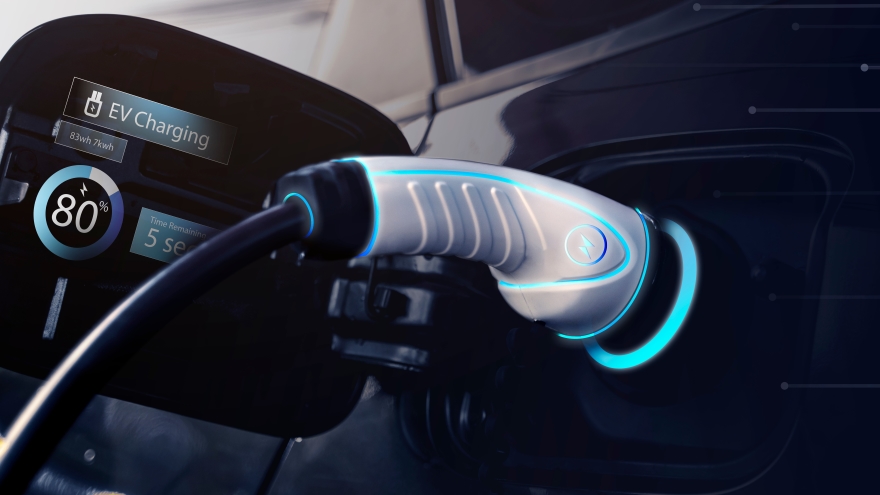More insight about charging & insuring EVs

By subscribing, you agree to receive communications from Auto Remarketing and our partners in accordance with our Privacy Policy. We may share your information with select partners and sponsors who may contact you about their products and services. You may unsubscribe at any time.
Two of the growing factors impacting electric vehicles are charging them and securing affordable insurance, and three research projects shed more light on those elements of EV ownership and how consumers are adjusting.
First, Mercury Insurance compiled a list of the most affordable new EVs to insure, but a Tesla is not mentioned among the top 10.
A separate report from LendingTree insurance site ValuePenguin.com might explain why.
Headquartered in Los Angeles, Mercury Insurance wanted to compile a top 10 list due to the growing demand for electric vehicles, particularly in California. The company explained that factors contributing to insurance costs include claims on similar vehicles, cost to repair and vehicle safety records.
Mercury’s research and development team examined 2024 model-year EVs that are now available at dealerships today to compile this list.
According to the company, the top 10 list for new EVs, beginning with the most affordable make and model to insure is:
Subscribe to Auto Remarketing to stay informed and stay ahead.
By subscribing, you agree to receive communications from Auto Remarketing and our partners in accordance with our Privacy Policy. We may share your information with select partners and sponsors who may contact you about their products and services. You may unsubscribe at any time.
Nissan Leaf
Ford F-150 Lighting
Kia Niro
Hyundai IONIQ (all models)
Volvo C40/XC40 Recharge
Chevrolet Equinox EV
Fiat 500e
Subaru Solterra/Toyota BZ4X/Fisker Ocean Sport
Volkswagen ID.4
Genesis G80
“One of the most important aspects when researching your ideal EV is to consider the total cost of ownership, in which insurance plays an important part,” said Chong Gao, director of product management for R&D with Mercury Insurance. “We realize that for many customers this may be their first time considering an EV and it helps to have as much information as possible.”
You probably noticed a Tesla wasn’t listed among the vehicles highlighted by Mercury Insurance. Here’s some evidence of why.
A recent report from LendingTree insurance site ValuePenguin.com found that insuring and operating a Tesla Model Y is $1,047 more expensive on average than for a comparable gas-powered car of similar size. ValuePenguin used the Toyota RAV4 XLE for comparison.
What accounts for this gap? ValuePenguin said it’s largely due to insurance costs.
In fact, ValuePenguin determined the average annual cost of full-coverage auto insurance for a 2023 Model Y is $4,325, versus an average of $2,415 for a 2023 RAV4 XLE. That means yearly insurance costs are 79.1% higher for a Model Y.
ValuePenguin noted that insurance cost averages were calculated via Quadrant Information Services, which compiles publicly sourced rates from insurer filings. However, it’s worth noting that Tesla offers private insurance in 12 states, which isn’t included in ValuePenguin’s findings.
According to ValuePenguin auto insurance expert Divya Sangameshwar, there are a few explanations behind the findings.
“Tesla electric vehicles (EVs) are expensive to insure because they cost a lot of money to repair and maintain,” Sangameshwar in the report. “Tesla drivers are also the most likely to get into crashes. The high cost of repairs and the high risk posed by reckless drivers enjoying how fast these cars accelerate is why insurers charge such a high premium for Teslas.”
Whether it’s a Tesla, a Ford, a Chevrolet, a Volkswagen or another OEM’s EV, a survey by Vontier illuminated what consumers are feeling about keeping their electric vehicles charged — especially away from home.
The global industrial technology company said its study highlighted a critical gap in the current EV charging infrastructure and points to potential solutions that could accelerate EV adoption, including charging station design and placement.
Nearly 80 percent of EV drivers reported they would go out of their way to use a public charger located in a safe environment, according to the survey. Vontier said this statistic underscores a significant issue with many existing charging stations, which are often poorly lit, lack security cameras, and are situated in isolated areas of parking lots with minimal supervision.
The survey also found that over half of EV drivers would drive farther for charging stations that offer protection from the elements, such as rain or snow.
Additionally, 67% of respondents said they would go out of their way for stations near shopping areas, while 63% would opt for stations close to dining options.
“It’s not just about plugging in anymore — it’s about peace of mind,” Vontier president and CEO Mark Morelli said in a news release. “Addressing these safety concerns is imperative for the future of EV adoption, and convenience stores are uniquely positioned to address this challenge. They innately provide a safer, more comfortable charging experience while offering the amenities that drivers desire to be more productive during their charging time.
“While convenience remains a factor, businesses should never underestimate the power of a superior charging experience. Drivers will more likely stop at your store, and buy more, if done right,” Morelli went on to say.


